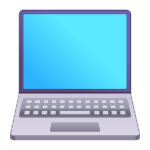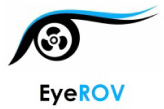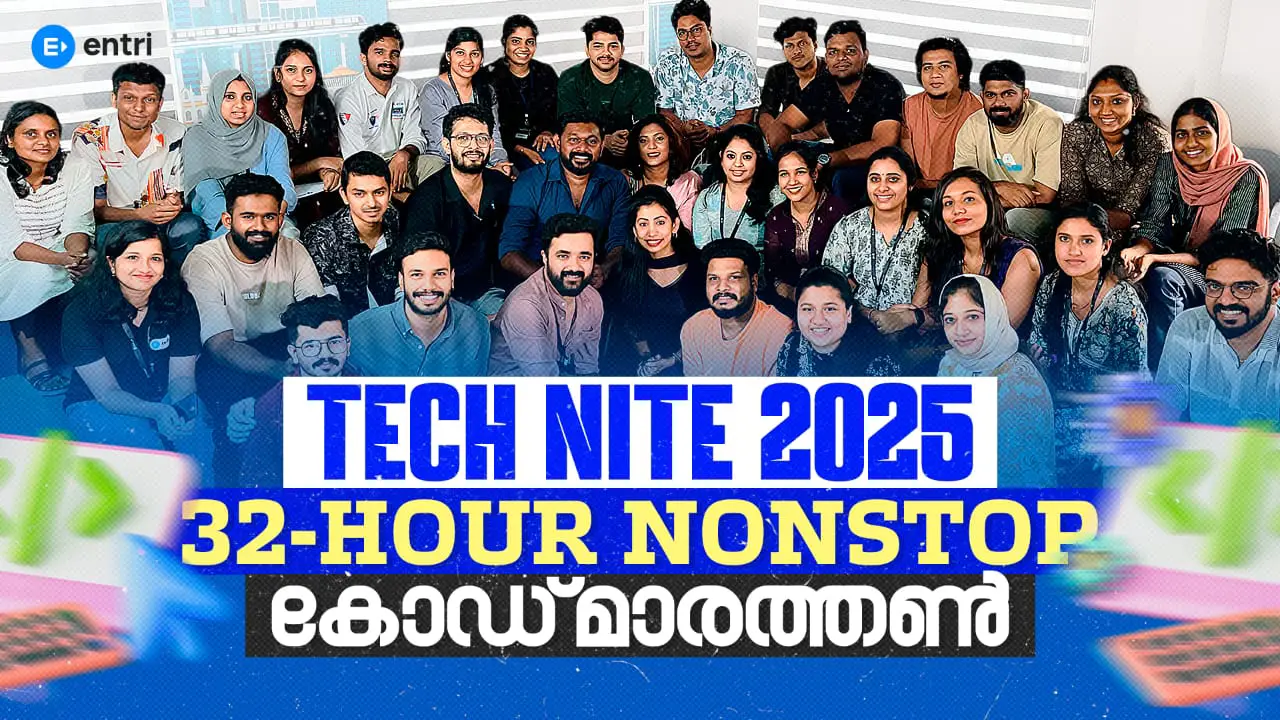AI-Powered Online Software Testing Course
Master software testing course featuring placement support. Learn essential techniques, automation tools, and gain valuable industry insights to advance your career. Enroll now to elevate your skills!
Online
Placement Assistance


Overview of Our Software Testing Course
Elevate your skills with the Entri Elevate Software Testing Program, designed to empower aspiring professionals with the knowledge and expertise needed to succeed in the competitive tech industry. Our program offers a unique blend of theoretical learning and practical experience, ensuring that participants gain a deep understanding of software testing principles and techniques and learn how to apply them in real-world situations. Through interactive lessons, industry-relevant projects, hands-on experience, and expert guidance, Entri Elevate equips individuals with the competence to excel in software testing roles.
_1575.webp)
Industry Expert Sessions

Inclusive & Immersive Hybrid Training Sessions

80+ Live & Recorded Sessions

Soft Skill Sessions
_7003.webp)
Industry Networking

Placement Training

Illinois Tech Certification

Placement Support
Software Testing Skills You Will Master
Our comprehensive software testing course covers all the essential skills required for a testing role. These are the key skills you will master:
Software Testing Placement Success: See Where Our Learners Work
Here are a few of our Software Testing Course Students who have secured great positions in leading companies.
Software Testing Tools Covered
Illuminate the path to insights! Learn Software Testing with these necessary tools!
Career opportunities in Software Testing
After completing the Entri Elevate software testing course, you can explore various high-paying job opportunities in the tech industry. Here are some roles you might consider
Software Tester
Responsible for executing test cases, identifying defects, and ensuring software quality.
Test Engineer
Designs and executes test cases, identifies defects, and ensures the overall quality of software products.
Automation Test Engineer
Develops and maintains automated test scripts using tools like Selenium, Appium, or Robot Framework to improve testing efficiency.
Manual Tester
Conducts manual testing activities such as test case execution, defect reporting, and regression testing without relying on automated tools.
Performance Tester
Specializes in testing the performance and scalability of software applications under different load conditions.
Test Analyst
Analyzes testing requirements, designs test plans, and performs testing activities to validate software functionality.
Quality Analyst
Analyzes software requirements, designs test cases, and ensures that software products meet quality standards.
QA Tester
Conducts quality assurance activities including test planning, execution, and defect management to ensure software quality.
Test Lead / Test Manager
Oversees testing teams, manages testing strategies, timelines, and resources.
QA Lead
Leads QA efforts, coordinates between development and testing teams, and ensures quality goals are met.
Test Architect
Designs and defines the overall testing framework, tools, and processes for projects.
Security Tester / Penetration Tester
Focuses on finding vulnerabilities in applications, systems, or networks.
Mobile App Tester
Specializes in testing applications on iOS and Android platforms
Usability Tester / UX Tester
Evaluates user experience, accessibility, and interface usability
API Tester
Specializes in testing backend APIs for functionality, performance, and reliability.
Database Tester
Validates data integrity, consistency, and performance in databases
ETL Tester
Tests data extraction, transformation, and loading processes in data warehousing.
Compliance Tester
Ensures software meets regulatory and industry compliance standards.
Localization Tester
Tests software for language, culture, and regional compatibility.
Game Tester / QA for Gaming
Specializes in testing video games for bugs, performance, and playability.
AI/ML Tester
Focuses on validating AI models, machine learning algorithms, and data-driven systems.
Software Testing Course Syllabus
The Software Testing syllabus is designed to equip you with the skills needed to become a successful software testing professional. Below is the updated course syllabus
- Introduction
- What is Testing?
- Why we need testing?
- Quality Assurance vs Quality Control
- Types of Applications
- Principles of Software Testing
- Verification and Validation
- Static and Dynamic Testing
- SDLC Phases
- SDLC Models, Waterfall, V-Model
- SDLC Models - Iterative, Incremental, Agile
- Agile with Scrum Framework
- STLC
- Requirement Analysis - RTM Preparation
- Test Planning - Test Plan Document Preparation
Assignment 1
-
- Test Cases Design - Test case Document Preparation
-
- Test Cases Review
-
- Test Environment Setup or Test Bed
-
- Test Cases Execution
Additional Topics
-
- Defect Life Cycle or Bug Life Cycle (Mistake, Bug, Defect and Error)
-
- Test Summary
-
- Test Signoff
Assignment 2
- Functional Testing Types
- Non - Functional Testing Types
- Jira Installation
- Jira Test Cases creation
- Jira Test cases execution and defects raising
- Jira defects retesting
Mini Project
- MANUAL TESTING PROJECT - Day 1 | Orientation
- MANUAL TESTING PROJECT - Day 2 | Review 1 | Mock Interview
- MANUAL TESTING PROJECT - Day 3 | Review 2 | Mock Interview
- MANUAL TESTING PROJECT - Day 4 | Review 3 | Mock Interview
- MANUAL TESTING PROJECT - Day 5 | Review 4 | Mock Interview
- MANUAL TESTING PROJECT - Day 6 | Submission
- MANUAL TESTING PROJECT - Day 7 | Preparatory
- MySql Introduction; Installation ; MySql Data Types
- MySql Basic Queries(create db & table, select)
- MySql Basic Queries(insert)
- MySql Basic Queries(and/or/not/orderby)
- MySql Basic Queries(update,delete)
- Aggregate Functions
- Constraints
- Joins
Introduction & Installation JAVA & JDK, JRE, JVM
- JAVA Basics:
- Class, Object, Methods
Data Types
-
- Primitive DataTypes
-
- Non-Primitive DataTypes
Operators
-
- Arithmetic Operators
-
- Unary Operators
-
- Assignment Operators
-
- Relational Operators
-
- Bitwise Operators
-
- Logical Operators
Control Statements
-
- Simple if statement
-
- else if statement
-
- else if ladder
-
- switch statement
-
- Break statement
-
- continue statement
Array and Types of Arrays
- String and String Functions
- Asscignment 3: Programs in Control Statements, Arrays, Strings
- Types of string
- String Buffer, 2. String Builder
- Type Casting
- Wrapper Classes
- Asscignment 3: Programs in Control Statements, Arrays, Strings
Types of Methods
-
- static Method
-
- non-static method
Oops Concepts
-
- class & Object
-
- Inheritance
- 2.1 Single Level inheritance
- 2.2 Multi-Level inheritance
- 2.3 Hierarchical inheritance
- 2.4 Hybrid inheritance
- 2.5 Multiple inheritance
- Assignment 4 3. Polymorphism
- 3.1 Method overloading
- 3.2 Method Overriding
- Abstraction and interface
- Constructor
- 5.1 Default Constructor
- 5.2 Parameter Constructor
- Encapsulation
Collections in java
- Exception Handling
- Keywords in java This, super, final, finally
Automation Basics
- Fundamentals Of Test Automation.
- What are the advantages Of Automation.
Introduction to Selenium
- What is mean by selenium AND how it is used in real time.
- Components in Selenium
- Features of Selenium
- Versions in Selenium
Selenium IDE
- What is mean by Selenium IDE
- How to installing Selenium IDE
- Building Test Scripts in Selenium IDE
Advantages and Disadvantages in Selenium IDE
- Locating Elements on web page by using Selenium IDE
Selenium Web Basics-1
- Selenium Web Driver Overview
- Configuring WebDriver in Eclipse
- WebDriver Architecture.
- WebDriver Drivers.
- Locating Elements in WebDriver.
- Handling Elements.
- Running test in Multiple Browsers.
- Synchronizations [Waits].
- Handling java Script Alerts, JavaScriptExecutor_Methods in Selenium
- Prompts and conformations.
Selenium Web Basics-2
- Handling Multiple frames
- Handling Multiple Windows
- Capturing Screen Shots
- Browser Navigation
- Handling Web Tables.
- Finding Broken Links.
Assignment 7
TestNG Framework
- What is Testing? How to install TestNG Plug-in Eclipse
- Features in Testing[Annotations]
- Assertions.
- Writing Selenium Test Scripts From Scratch
- Generating Reports in TestNG.
- WebDriver-Frameworks
- Introduction to various Frameworks
- Data Driven Testing Using POI
- Reading and writing data in Excel
- Page Object Model Framework
- POM
- Writing Scripts Using POM
- Testing Features
- Configuring Test Suits
- Passing Parameters to TestNG
- Parallel Test Execution Capability
- Re-Run failed Test Scripts
- Attribute of @Test
- Built Automation Tool [Maven]
- Creating Maven Project
- Understanding of POM.XML
- Maven Integration with TestNG
- Executing Scripts Using Maven
- Build Tool
- Assignment 8
- Introduction of Cucumber
- Advantages of Cucumber Framework
- Overview of BDD and Cucumber project setup
- Gherkin Keywords
- Working with simple Scenario
- Cucumber Options
- Generating Cucumber Reports
- Working With Data tables
- Page Object Model in Cucumber
- Background and Hooks Example in Cucumber
- GitHub
- What is Version Control System
- What is GitHUB
- Downloading the GitHUB Desktop
- Pushing our Project into GitHUB
- Git Commands
- Continuous Integration tool [Jenkins]
-
- Configuring Jenkins
- Commands in Jenkins free
- Creating Maven JOB
- Manage Plug-ins
- Scheduling the Jobs
- Assignment 9
- Performance Testing [Jmeter]
- Introduction to Performance Testing
- Types of Performance Testing
- Tools used in Performance Testing
- Installation of Jmeter
- Components of Jmeter
- Building a Web Test Plan & HTML
- Report Generation
- Introduction to API Testing
- What is an API
- Types of APIs
- Introduction to API Testing
- Key Differences Between UI and API Testing
- HTTP Methods: GET, POST, PUT, DELETE HTTP Status Codes: 200, 201, 400, 401, 404, 500
- Understanding Headers, Query Parameters, and Request Body
- Getting Started with Postman
- Installing and Setting Up Postman
- Overview of Postman Interface and Tools
- CRUD Operations using Postman
- Sending GET Requests to Retrieve Data
- Sending POST Requests to Create Data
- Sending PUT/PATCH Requests to Update Data
- DELETE Requests to Remove Data
- Writing Test Assertions in Postman
- Using the Tests Tab to Write Basic Validations
- Common Assertion Examples using JavaScript
- Organizing Tests with Collections
- Creating and Structuring Postman Collections
- Grouping Requests into Folders for Better Organization
- Using Environment and Global Variables
- Creating and Applying Environment Variables (e.g., {{base_url}}) Using Variables in URL, Headers, and Body
- Automating API Testing using Collection Runner
- Running Entire Collections
- Automatically Viewing and Interpreting Test Reports
- Brief Introduction to Data-Driven Testing (CSV/JSON Files
- Introduction to AI in Testing
- What is AI in Software Testing?
- Benefits & Limitations of AI in Testing
- AI vs Traditional Automation
- Testcraft Browser Extension AI tool
- Getting Started with Katalon Studio
- Installing and setting up Katalon
- Codeless test case recording
- Manual vs Script mode
- Getting Started with BrowserStack
- Introduction to Browser Stack
- Setting up a free account
- Manual Cross-Browser Testing using Live mode
- Limitations of the free tier and how to maximize it
- Low-Code Automation with BrowserStack
- Record & run simple test scenarios with BrowserStack Live
Pre-requisites / Eligibility for Joining Software Testing Course
There is no specific age limit/educational background required for join Software Testing Course. However, a basic understanding of mathematics and programming can be beneficial.

Critical Thinking and Problem-Solving Skills
The ability to analyze problems, think critically, and come up with effective solutions is important in software testing.

Basic Mathematical skills
Basic arithmetic operations, understanding of variables, and algebraic expressions.

Basic Computer Skills
Proficiency in using computers, navigating operating systems (e.g., Windows, macOS, Linux), and familiarity with basic software applications.
_160.webp)
Logical Thinking
Being able to Analyze and evaluate a problem and then come up with a sensible solutions
_8427.webp)
Critical thinking
Ability to evaluate different solutions and choose the most appropriate one.
See Where Our Students Are Working
Connecting you with leading companies and unlocking opportunities
Why Live Sessions?
Offering live sessions as part of a software testing course can provide several benefits:
Live Interaction
Live sessions allow students to interact with instructors and peers in real-time, facilitating immediate clarification of doubts and questions.
Immediate Feedback
Students receive immediate feedback on their understanding and performance during live sessions, enabling them to identify areas for improvement and make necessary adjustments.
Demonstration of Concepts
Instructors can demonstrate software testing concepts, techniques, and tools live, allowing students to observe and learn through practical examples.
Joint Learning
Encourage collaboration and knowledge sharing among students, encouraging a sense of community and enhancing learning through peer-to-peer interaction
Increased Retention
The interactive nature of live sessions can enhance information retention as students are actively involved in discussions, exercises, and problem-solving activities.

Your Industry Expert Mentors
Learn Software Testing Concepts from from top-notch mentors
Software Testing Course Certificates
Courses Recognised by


Frequently Asked Questions
Success Stories: Reviews From Our Recently Placed Students
Enrolled by 550 StudentsKey Learning Outcomes from the Software Testing Course
The key Learning Outcome from the "Entri Elevate Testing course " course are as follows
Software Testing Fundamentals
Students will learn the principles and concepts of software testing, including testing goals, types of testing levels of testing, and techniques (black-box, white-box).
Manual Testing
The course teaches manual testing skills, including designing test cases, executing tests, reporting defects, and verifying fixes. Manual testing is crucial for validating software functionality and user experience.
Java Programming
Students will learn Java programming covering syntax, data structures, OOP concepts, exception handling, and file I/O. Java proficiency is essential for automation testing with Selenium WebDriver.
Automation Testing
Comprehend automation testing using software tools to automate test cases. They'll cover benefits, frameworks, scripting languages, and best practices for scalable tests.
Selenium WebDriver
Understand how to use Selenium WebDriver, an open-source tool for testing web applications. You will gain hands-on experience on how to set it up, write test scripts in Java, locate elements on web pages.
Performance Testing
Learners will learn about performance testing for software applications. They will explore different tools, methodologies, and techniques for assessing performance and identifying bottlenecks.

Frequently Asked Question About Software Testing Course
Software testing is the process of verifying that a software application or system works correctly and meets requirements. It involves running tests to find errors or bugs, and ensuring the software is of high quality.
The demand for skilled software testers in India is high, with many IT companies actively recruiting for testing roles. Both multinational corporations and domestic companies offer opportunities in this field. They often have opportunities for career growth, with paths leading to senior testing roles, test management, quality assurance leadership positions, or transitioning into other areas of software development or IT management.
Yes. Software testing can be a good career choice due to its high demand, offering opportunities for growth and advancement. With the increasing complexity of software applications, skilled testers are essential for ensuring quality and reliability. The field provides diverse opportunities across various industries, allowing professionals to work on different projects and technologies. Continuous learning is inherent in testing, as it involves staying updated with evolving methodologies and tools. Testers contribute significantly to the success of software projects by identifying and addressing issues, making the role intellectually stimulating and rewarding for those who enjoy problem-solving and have strong analytical skills.
principles is essential. Candidates need to get familiarizing themselves with testing methodologies, tools, and frameworks. Getting practical experience through internships or volunteer opportunities can be beneficial. Besides, Create a portfolio showcasing your testing projects and network with professionals in the field. Continuously seeking opportunities for learning and improvement to advance in your software testing career will help to build a good career base.
To enrich your skills and deepen your knowledge, consider enrolling in software learning courses. Platforms like Entri offer comprehensive resources for learning software testing. By participating in these courses, you can gain valuable insights and hands-on experience to sharpen your testing expertise.
Software testing can be a good and fulfilling career choice in 2025. There is currently a high demand for skilled software testers in various industries, which ensures ample job opportunities. Software testing offers possibilities for career growth and advancement, with ways leading to senior testing roles, test management, and quality assurance leadership positions. Also, software testers play a crucial role in ensuring the quality and reliability of software products, contributing to customer satisfaction and the success of software projects. For individuals who enjoy problem-solving, have strong analytical skills, and value continuous learning, software testing can indeed be a fulfilling and good career option in 2025.
The difficulty level in software testing courses can vary based on factors such as the depth of the curriculum, the learner's prior knowledge and experience, and the teaching style of the instructor or learning platform. Some individuals may find software testing to be comfortable, especially if they have a strong understanding of software development concepts and logical thinking skills. However, others may need to exert more effort to understand the complexities of testing methodologies, tools, and techniques.
he most effective way to learn software testing is to build a strong foundation in core concepts, apply them through real-world projects using modern testing tools, and keep pace with evolving industry trends. This blend of theory, practice, and continuous upskilling ensures long-term expertise
To keep pace with evolving software testing trends, combine continuous learning with hands-on practice. Take certifications like ISTQB, explore test automation, AI-driven testing, and performance/security testing. Join online communities, attend conferences, and follow trusted blogs such as Ministry of Testing and TestGuild for the latest insights. Apply new tools in real projects or open-source contributions to reinforce skills. Stay adaptable by specializing in emerging areas like DevOps integration and continuous testing, and seek regular feedback to ensure your methods remain effective and future-proof.
Yes, you can start a career in software testing without a formal degree by focusing on skills, experience, and credibility.
-
Learn the Basics – Take online courses (Coursera, Udemy, LinkedIn Learning), join bootcamps, and earn certifications like ISTQB to validate your knowledge.
-
Get Hands-On Practice – Test real or dummy projects, contribute to open-source, or join paid crowdsourcing platforms like uTest and Testlio.
-
Build a Strong Portfolio – Document projects, highlight transferable skills, and craft a skills-focused resume.
-
Network & Find Mentors – Engage in testing communities, attend meetups, and seek guidance from experienced testers.
-
Ace Interviews – Be ready to explain your testing process, report bugs clearly, and show problem-solving skills.
To get back into software testing after a break, be honest about the gap, highlight transferable skills, and update your knowledge of modern tools like Selenium or Postman. Build a GitHub portfolio, earn certifications, network with peers, and target startups for flexible opportunities.
Steps:
-
Address the gap positively.
-
Refresh skills and gain certifications.
-
Build practical projects.
-
Network and attend events.
-
Apply widely, including startups.
The future of software testing is AI-driven, automated, and continuous. AI and machine learning will enhance, not replace, testers, enabling faster defect detection, predictive analytics, and codeless automation. Cloud-based, shift-left, and non-functional testing will dominate, requiring testers to adapt with critical thinking and new tech skills.
The ISTQB Certified Tester Foundation Level (CTFL) is widely considered the best certification for beginners in software testing. It’s globally recognized, beginner-friendly, affordable, and builds a strong foundation in testing concepts—making it ideal for landing entry-level roles.
Key benefits of ISTQB CTFL:
-
Global recognition – Trusted by employers worldwide.
-
Beginner-friendly – No prior experience required.
-
Career growth – Gateway to advanced ISTQB certifications.
-
Cost-effective – Lower exam fees than most alternatives.
Other beginner-friendly certifications:
-
CSTP – Practical, hands-on skills.
-
CAT – Agile testing expertise.
-
CSQA – Quality management and leadership track.
-
CAST – Fundamental software testing concepts.
Find Other Up-skill Programs
Entri App highlighted in the News
Advantages of Learning Entri's Elevate Software Testing Course
Elevate Learning Experience
Hands-on Experience
The course includes practical exercises and projects to apply your knowledge in real-world scenarios.
Immediate Feedback
Learners receive immediate feedback on quizzes, exercises, and assignments, facilitating faster learning and comprehension
Project Assistance
Provide personalized support and guidance for students throughout their projects, ensuring a comprehensive learning experience.
Self-paced Learning
You can learn at a speed that suits you, without feeling rushed or held back.
Expert Instructors
You can learn from experienced professionals and industry experts who develop and teach Entri Elevate Software Testing Courses.
Career Support
Personalized Industry Mentorship
Get mentored by an experienced expert and receive personalized feedback for better career guidance
Resume Review
In addition to technical skills, we help you develop soft skills such as communication and problem-solving
24/7 Availability
You can access course materials and study whenever it's convenient for you, even outside regular class hours.
Live soft skill training
Learners s will get additional soft skills training for aiding post-training placement assistance.
Real Stories, Real Success
Coding Event Moments
Software Testing Courses in City Wise
Who Can Apply
- Students
- Professionals
- Career Switchers
- Job Seekers
- House Wife
- Un-employed
- Freelancers




















_3017.webp)












_3995.webp)

_4827.webp)








_6720.webp)







_9523.webp)












_7366.webp)



_7758.webp)
_8019.webp)





_9844.webp)


_3487.webp)








